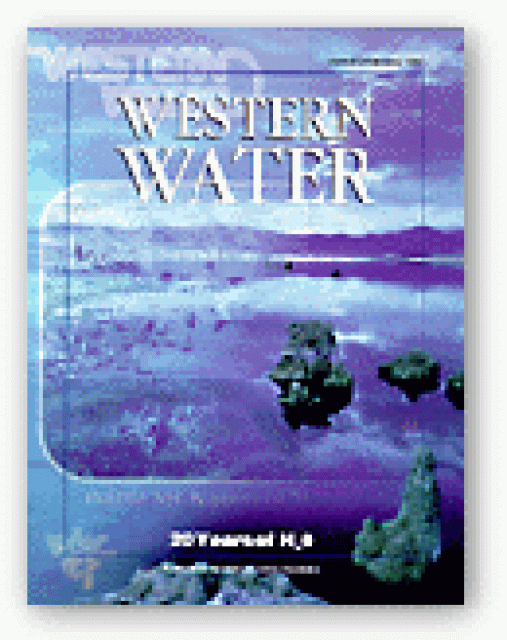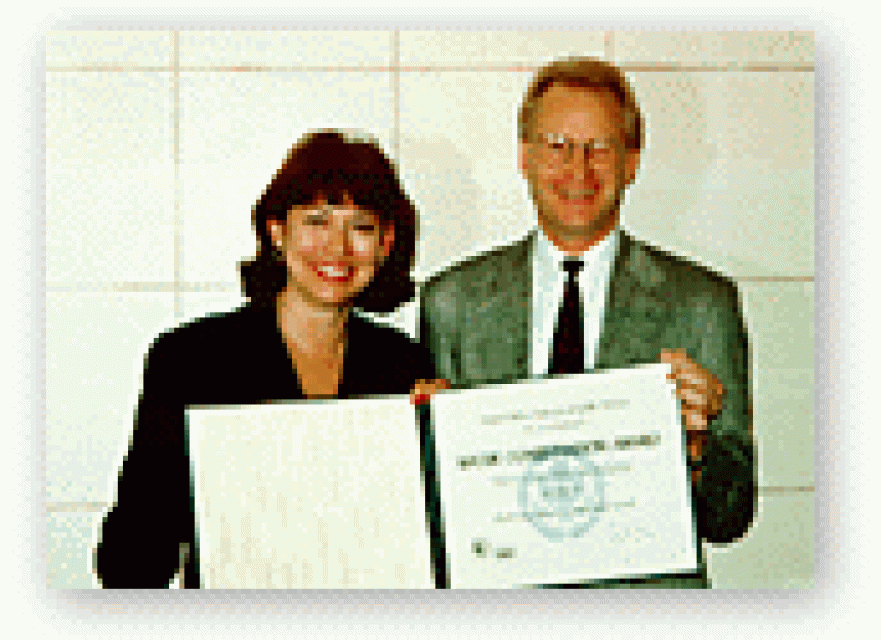20 Years of H2O
Jan/Feb 1997
Editor’s Desk
We were pleased to receive the U.S. Bureau of Reclamation’s highest award in the area of water conservation recently. The Foundation was recognized for being a long-term industry leader for conservation in California and the West. With receipt of this award and the contents of this latest Western Water, I’ve been reflecting on the more than 17 years I have spent at the Foundation. As Sue McClurg chronicles in her article, a series of talented people have worked both as staff and volunteers through our 20 years. Certainly the Foundation owes much of its success to these people.
In particular, our presidents, who serve without financial compensation, deserve special attention. They often have been involved in the controversial issues the Foundation has covered in Western Water, other publications and our television documentaries. Since they were all men accustomed to controversy, they handled it with much grace. Of course, their styles were completely different. I recall Jack Chrisman as quite a political conciliator, Bill Gianelli as tough and unshakable in his beliefs (we had some great arguments), Bob Hagan as ever the dedicated university professor and our current president Henry Vaux Jr. as quite a global thinker. Our diverse board also should be thanked. I’ve often marveled at their ability to look beyond their own interests as we debate subjects to be tackled in the pages of Western Water.
The water world also is indebted to three long time staff members. As you readers know, Sue has written Western Water for more than five years. I’ve seen how her skills as a writer and analyzer of water issues is respected by all sides of the debate. Program Director Valerie Holcomb has been with the Foundation for over seven years. A woman of many talents, over the years she has developed the water tours, written the grants and carried out projects ranging from town hall meetings to law conferences. Joining us as a full-time employee this year is our long-time educational consultant Judy Wheatley. We began our school program over 10 years ago with little funds but with expert direction from Judy. The program has grown into a full-time job. We also will add another full-time writer in 1997, Elizabeth McCarthy, an attorney and former Bureau of National Affairs reporter. “Lizzy” will take over Western Water the next few months as Sue prepares a report for the Western Water Policy Review Advisory Commission.
20 Years of H2O
It was the second year of a two-year drought. Jimmy Carter was in the White House. The Auburn Dam debate over funding and seismic safety was at its peak. The California Department of Water Resources was examining threepotential Delta solutions, including the Peripheral Canal. And on Feb. 27, 1977, articles of incorporation were filed to create the Western Water Education Foundation, a nonprofit, nonpolitical, tax-exempt educational organization.
As announced in the January/February 1977 Western Water, the Association of California Water Agencies (ACWA) decided it was time for the magazine, the California water map and other educational activities to be separated from ACWA’s political activities. “Primary purpose of the Foundation will be to provide information to the public relating to water resources, conservation, reclamation, reuse and development to assure that water needs are met on a timely and environmentally sound basis,” the announcement read.
“It is anticipated that the Foundation will engage in a variety of public education programs in addition to the Western Water publication. These may include development of teaching aids for use in schools, development and distribution of audio-visual materials, a public speakers bureau, information dissemination through print and broadcast media and other programs.”
Twenty years later, the Water Education Foundation (the Western was dropped in 1985) remains a vital source of nonpartisan, in-depth information about water resource issues in California and the West. Its catalog of materials has increased to 16 Layperson’s Guides, television documentaries, slide shows, teacher curricula, water maps and — something not envisioned in 1977 — computer games. The Foundation also has become well known for its annual Executive Briefing and water tours, and has a site on the World Wide Web.
The flagship of the Foundation remains Western Water. Published six times a year, the magazine consistently offers unbiased, thorough coverage of timely water topics. Through its pages, readers learn the latest about wastewater recycling, groundwater, water conservation, water marketing, water project financing, water quality, drought, salmon, urban growth, desalination, endangered species, and, of course, the San Francisco Bay/Sacramento -San Joaquin River Delta.
Timeliness always has been the chief criteria when selecting topics for Western Water. In the 1970s, the energy crisis and new or proposed water projects dominated the magazines. In the early 1980s, the focus was on legislative efforts to gain project funding and approval. The late 1980s saw more emphasis on water marketing and wastewater recycling to meet demand in drought and non-drought years. In the 1990s, water supply reliability, environmental protection, and water quality concerns have received significant attention.
Although the major water resource issues remain much the same two decades after the Foundation was formed, the focus gradually has shifted from controversy and conflict to compromise and consensus. No topic illustrates that more than the recent developments in the Delta, but it also is reflected by today’s acceptance of voluntary water marketing, and support for ecosystem and watershed management.
It was in the July/August 1986 issue, “California Water Interests: Working Toward Consensus,” that the Foundation focused its attention on what was then a new effort to find common ground on water resource issues. The article explored the various viewpoints of a dozen key interest groups, noting their positions on Delta issues, water management, water quality, agricultural drainage and environmental restoration.
“Although that word ‘consensus’ has become almost as much of a cliché as Mark Twain’s observation about whiskey and water, it appears to be overtaking and replacing the water ‘wars’ as the rule of the day,” the conclusion read. “Consensus, at least, has a positive ring to it, and even with the proliferation of positions on water issues, there seems to be increased understanding of problems of other areas. It may well be that there is, in the words of the California Water Commission, an ‘improved spirit of cooperation’ growing among California water interests.’”
Whether consensus or conflict, Western Water has been here for 20 years, providing a balanced view of the difficult dilemmas facing water managers throughout the West. The same dedication is seen in all the Foundation’s activities — from tours to school programs to conferences. The mission to provide unbiased educational material is one the Foundation’s staff and board take seriously, and one they will continue to fulfill.
by Sue McClurg
Contact the Water Education Foundation to obtain this issue of Western Water magazine






